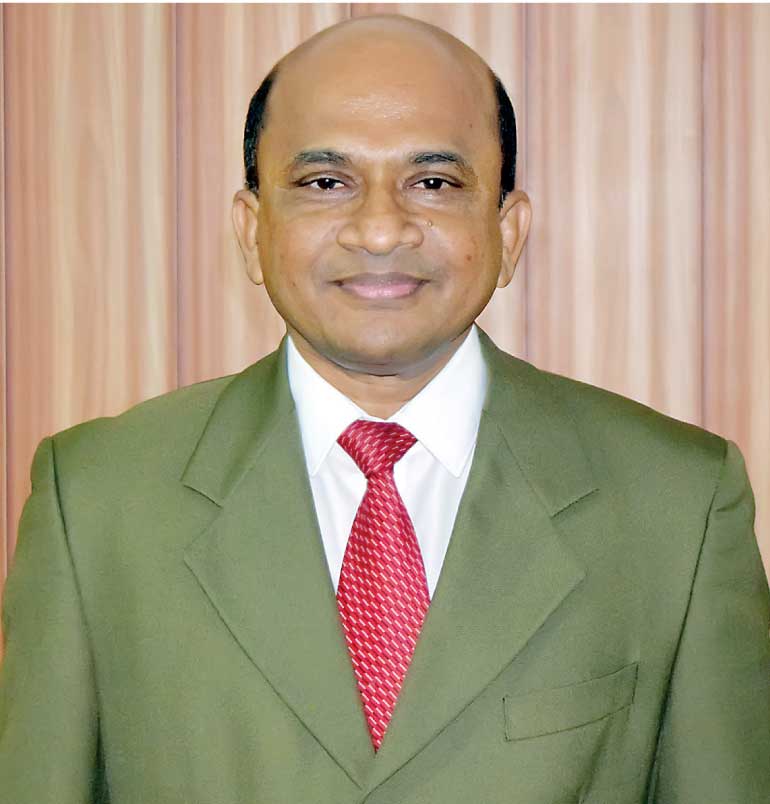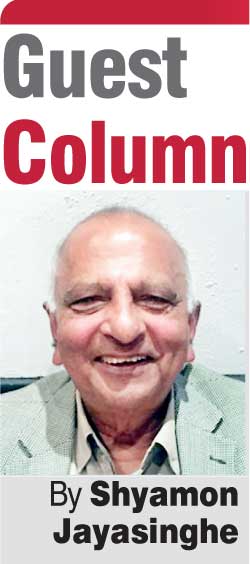Sunday Feb 22, 2026
Sunday Feb 22, 2026
Monday, 14 August 2017 00:01 - - {{hitsCtrl.values.hits}}
 Auditor General H.M. Gamini Wijesinghe
Auditor General H.M. Gamini Wijesinghe
Whither Audit Bill?
We are informed by the media that Cabinet has deferred the new Audit Bill for the 24th time. Apparently, the bone of contention is the proposed powers to disallowance and surcharge.
All Westminster-style jurisdictions do give firm independent powers to the Auditor General (AG) leaving the latter to perform effectively as the nation’s financial watchdog as far as disbursements out of the public treasury (Consolidated Fund) are concerned. The AG is legally invested with the power to disallow and surcharge in all such cases.
When, as youngsters, we joined the Sri Lanka Administrative Service (1963), we were scared of the AG and were kept on our toes. Our supervising ministers, in turn, were aware that we could be surcharged for any losses to public property or funds, which were our direct responsibility to look after. This, made it hard for ministers to order us to do wrong. It was Yahapalanaya then.
Since the mid-sixties and after 1972 (when the PSC was debilitated) in particular, the old discipline gradually withered; accelerated its decline over the last 10 years; and is now virtually dead. We have seen public servants rob the public treasury along with ministers and other political executives.
Typically, when a minister gets office he first looks around and surveys his officially-given privileges and the potential for making money on the bend. He attempts to create a nexus among his ministry secretary and the private staff. The bad ministry secretary will give in and the honest one will have trouble from day one.
Power of surcharge and a case from Ghana
With a needed cynicism one can discern why MPs of both the UNP and SLFP have protested about the “inordinate power of surcharge” to be granted to the AG. This will, like during our time, restrict politicians’ theft. Public servants will, more likely, refuse to accede to the political demands because they would get into hot water.
 Disbursement of Government vehicles was a big sore point during the end of my career. One minister was very concerned about ensuring that his family members were permitted to use Government vehicles at will. It was an uphill task for me to ward off the minister’s advances! Things have gotten worse ever since that and by that relative comparison mine was minor.
Disbursement of Government vehicles was a big sore point during the end of my career. One minister was very concerned about ensuring that his family members were permitted to use Government vehicles at will. It was an uphill task for me to ward off the minister’s advances! Things have gotten worse ever since that and by that relative comparison mine was minor.
There was an inspiring incident from Ghana recently where citizens, who were dismayed by the politicisation of the AG’s office, banded together in an ‘Occupy AG’ campaign. The campaigners filed action in the Supreme Court. The Supreme Court granted all the relief sought by the pressure group, Occupy Ghana, in respect of the Auditor-General’s powers of disallowance and surcharges. The Court declared that AG must issue disallowance and surcharges in respect of all State monies found to have been expended contrary to law.
The second relief granted by the Court is that the Auditor General must take steps to recover all amounts lost to the State, and this covers private persons. The Attorney General has also been ordered to ensure enforcement of the orders, including criminal prosecution where necessary.
This is a classic case of the success of civil organisation pressure and I quote this as a model for my fellow-countrymen to follow.
Revved-up AG
It was no secret that under the previous regime the AG had virtually come under the President. Our Government then went low by even Ghana’s standards. On the contrary, with the Ravi Karunanayake episode, one happily observes a revved-up AG.
There isn’t any doubt that the new Government’s official acceptance of checks and balances and good governance have already brought outcomes. I enjoyed reading the cross-examination and grilling of Minster Ravi Karunanayake, when he came before the Commission, by De Livera of the AG’s Department. That is a new classic. It looked almost surreal and one could observe how the Minister felt a sense of having being pricked on the self-pride injected to politicians in a UPFA culture. Dear reader, please observe and enjoy yourself the penetrative and invasive nature of the questioning:
Q: Did your wife visit the premises before you rented it?
A: I was told that she did
Q: She went there alone?
A: I don’t know.
Q: Did she tell you that she met Arjun Aloysius in the premises?
A: No
Q: She did not tell you that Mr. Aloysius came in and discussed matters with Miss (Anika) Wijesuriya in the presence of your wife?
A: No. All I know is that Miss Wijesuriya was the former girlfriend of Arjun Aloysius.
Q: Miss Wijesuriya said that when your wife visited, she called Mr. Aloysius and he visited the place?
A: I don’t know that. I am only privy to what my family has told me.
Q: Are you aware of the existence of the company Walt & Row?
A: No
Q: Do you know that Arjun Aloysius and his father are Directors of this company?
A: They are directors of many companies. That’s all I know. I do not know who is owning what.
Q: You did not know that this apartment was leased by Walt & Row from Miss Wijesuriya?
A: No. I need not know.
I also enjoyed reading ASG Yasantha Kodagoda’s rebuttal of Minister Ravi, when the latter inadvisably accused the AG’s Department of a ‘conspiracy’. “How could the AG get information off 8,000-odd pages in so short a time?” Ravi queried. The ASG reminded Ravi of the use of search engines and suggestively marked the latter as being ‘illiterate’. That was another masterpiece of the Yahapalanaya revolution.
New spirit not enough
On the other hand, the new and more congenial spirit and soft environment won’t be adequate in the long run. The struggle between the greedy political executive and the law is perennial and irrepressible. If Yahapalanaya is to be re-established, it is crucial that we legally create a strong and independent AG with powers of disallowance and surcharge. Such AG must be accountable only to Parliament and dismissible only by a two-thirds majority of Parliament in a vote of impeachment. He should be protected by the invasion of executives.
One cannot make an effective watchdog of the AG unless he is legally endowed with real independence to investigate, to expose, and to recover losses. In order to make his independence real, the AG must, concurrently, be well remunerated above the public service norm and he should be disallowed from seeking public service appointments after retirement. His staff should be an elite one – also well paid, professional, and well remunerated.
(The writer can be reached via [email protected].)